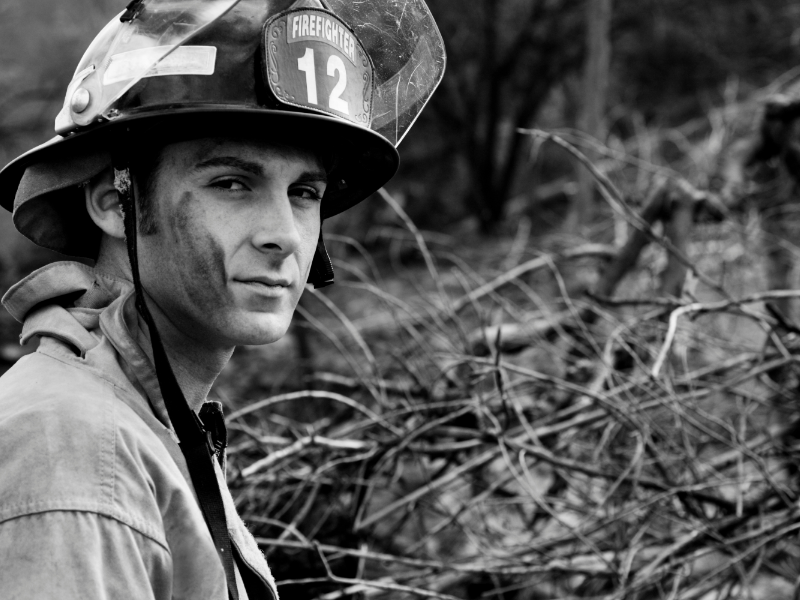Addressing PTSD, Anxiety, and Depression in Your Public Safety Agency
Date:Thursday February 1, 2024

As leadership in a public safety agency, you care deeply about the livelihoods of your team. After all, they bravely go out and address many of the most difficult crises in your community. Unfortunately, some of the traumatic experiences that first responders witness have been shown to take a toll on their mental health. While only a fifth of the general population have experienced PTSD and depression, about 30% of first responders have these conditions. These conditions are very serious, with consequences of many kinds, including suicidal thoughts.
Keeping your teams physically safe is always a top priority, but more and more agencies are working to protect the mental health of their teams as well. This work has created a valuable body of research that helps individual agencies learn best practices for supporting mental health, particularly through addressing PTSD, Anxiety, and Depression.
Here are some of the concrete ways you can help your team members cope with and overcome PTSD, anxiety, and depression.
- Anonymous Feedback or Self-Reflection: Among leadership, think about whether there is a quiet or overt stigma about disclosing mental health concerns in your agency. Realistically, do you think your team members are honest with each other and with you when they need new mental health resources? You may feel you’re already doing a great job and providing multiple options for mental healthcare. However, if you feel there might be unspoken concerns, consider an anonymous survey where team members can mention what they really feel about mental health resources in your agency.
- Normalize Seeking Help For Symptoms of These Illnesses: First responders already know the language of illness and medicine. Discussing what the symptoms of PTSD, anxiety, and depression are, as well as the ways that people find relief from them, may help your team recognize their own symptoms and work toward treatment. Having an experienced psychologist or psychiatrist who has worked with first responders visit and give a talk on these symptoms can help boost understanding of the first-responder-specific contexts that can trigger PTSD, anxiety, and depression.
- Explore CISM and Other In-the-Moment Strategies: Very effective, specific interventions, like CISM (Critical Incident Stress Management), help involved first responders process their experiences after a traumatic event. Spend time learning about how adding certain protocols to your agency could reduce the incidence of PTSD by addressing issues immediately and with trained help.
Your team may be great at providing care for others but have some members who are suffering in silence due to a belief that they are the only ones. Use the influence you have, both on procedures and on communication within the agency, to move your team toward recognizing and addressing PTSD, anxiety, and depression. These conditions take time to heal and treat, but helping put your team on the road to treatment and recovery can make everyone involved stronger and better suited to their roles in the long run.
Resources:
- Lighthouse’s Therapist Finder tool can help with finding a local set of options for your team. You can specifically find practices that offer first-responder-centric therapy; they may not be local to you, but more therapists than ever are offering teletherapy options that may be relevant for your team.
- The COVID-19 crisis has prompted some thoughtful conversations, like this one, about how to make mental health services fit the culture and needs of first responders.
- SAMHSA has a variety of valuable resources, like this one, showing that the trauma experienced by first responders is real and merits treatment and resources.
- Academy Hour offers online courses for first responders that address a variety of mental health and leadership topics, including depression and PTSD.
- Survive First is a 501(c)3 whose mission is to reduce first responder suicide through quality education, peer support, and mental health and wellness resources, while fostering a greater sense of community and awareness amongst first responders and their supporters. They are a resource for first responders and their families seeking information to help navigate the mental health challenges a career in public safety and health fields often bring.
- COPLINE® offers a CONFIDENTIAL 24-hour hotline answered by retired law enforcement officers who have gone through a strenuous vetting and training process to become an active listener. CopLine® retired officer listeners provide assistance with the successful management of various psychosocial stressors that impact a significant number of law enforcement officers and their families.
